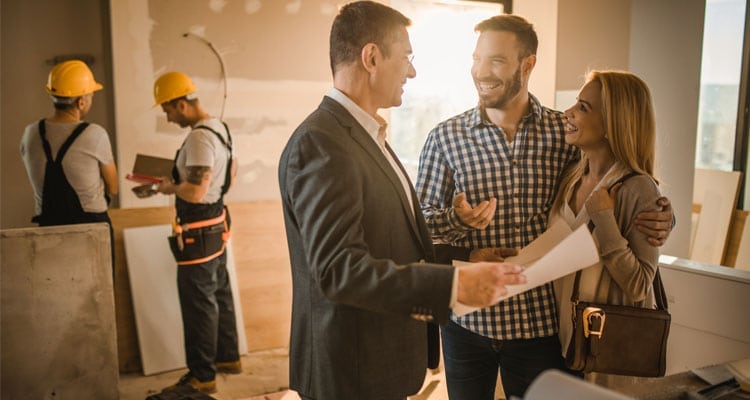Source: Ooba

“Everyone will have their own reasons for choosing either to buy an existing home or to build from scratch and ultimately it’s about what’s right for you,” says Rhys Dyer, CEO of ooba, South Africa’s largest bond originator. “First-time buyers should consider what they want in a property, and make sure to visit examples of both to get an idea,” he advises.
To help you decide whether to build or buy, Dyer explains the key benefits of both.
Reasons to buy an existing home
“Generally, an established property will be located closer to a city centre than a new home (as vacant stands are rare in inner-city areas), and therefore will be closer to facilities and infrastructure, such as schools, employment opportunities and public transport,” says Dyer. Not only is this location usually considered preferable, but the plot of land the home sits on will generally be bigger than what’s offered for new builds.
“An established property often has a nice-sized garden along with a good-sized house, something you generally have to pay through the nose for in a brand-new build,” he notes.
Buying an established home is also a quicker process than building a new house. Once the initial house hunting is done, the bond secured and the deposit paid, buyers can often move in and start their new life, sometimes in as little as three months.
“New homes, on the other hand, require months to build and have the potential extra burden of delays and complications. Because of this, many buyers will need to continue renting another property while their new home is being built,” Dyer points out. There is also an enormous time drain to pick out all the finishes, colours and fittings for a new home. This is even more time consuming if building an architectural home.
Another factor to consider is the positive impact of established gardens, parks and trees in longstanding homes, which are often lacking in new housing estates, he adds. “Gardens are often overlooked when tying down a bond for a new home but perhaps they should be listed as a cost… if you have never set up a whole garden and lawn before, you may not be aware of how very costly it is.”
A key question buyers must ask themselves is whether they are looking for their forever home or an investment property, Dyer advises. “If it’s the latter, the established home is generally the better bet. “If first-time buyers want the opportunity to move to a second bigger and/or better home, they need to ensure that their first home will grow in value to allow for this upgrade. “Buying the right established property can add instant value with the right makeover and they could find themselves up-scaling to the property of their dreams much faster.”
Buyers can also more easily compare prices and investment results of similar properties when dealing with established homes, he says. “Purchasing an established home also offers buyers a good understanding of design, style and price point for other houses in the area, allowing them to understand the home’s future financial value.”
Reasons to build from scratch
Many first-time buyers are drawn to the option of building their own homes due to the savings available, such as no transfer duty, explains Dyer. “If you choose to use your new home as an investment property, you can claim depreciation quite rapidly over the first few years, which is a good tax benefit to take advantage of,” he adds.
As a new home is more likely to be built to a higher energy-efficient standard and carry fewer maintenance issues than an established home, there is also the potential ongoing savings. “A well-designed home utilising responsible building practices like natural ventilation, solar panels with battery backup, and grey water systems will almost always appreciate in value,” he says, adding, “Even if issues do arise, these will generally be covered under guarantee. “You have a house that you won’t have to put any money towards over the next few years. Everything is nice and new, so there is no work to be done.”
Of course, the major drawcard of a new home is the creative control this offers buyers, he points out. “You decide where the fireplace goes, what roofing you use, how big your entertainment area is…
“This method of buying can be particularly rewarding, and arguably gives buyers better value for money,” he adds. “While a two-bedroom unit might be more affordable, nothing quite beats having a new home that’s built exactly how you want it to be.” “The stories you’ll share with your friends while you’re enjoying a cold one around the braai become more real and you’re passionate about them because you were involved in the process.”
“Often you get a lot more for your money. Sure, a two-bedroom unit might be cheaper but it’s pretty awesome to have a new home, that’s built exactly how you want it to be.” And while building may be a more time-consuming process, it can save buyers several weekends of time spent at viewings and negotiating with agents.
“There is normally far less competition in buying a piece of land and building your home than there is for buying an existing home. Many people are put off by the stress and cost of building,” Dyer explains.
“Home designs and sizes have changed dramatically in South Africa over the last 20 years, so by building a new home, you can create the exact floor plan that you desire rather than taking on the costs involved with creating an open floor plan in an existing property with an outdated design.”
